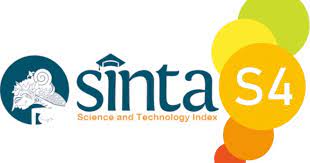Exploring EFL Students’ Problem in Online Learning and Its Practical Solution
DOI:
https://doi.org/10.22219/englie.v3i2.22310Keywords:
Keywords: Online Learning, Solutions, Students Problems.Abstract
The spread of the COVID-19 virus that has swept across the world has changed various aspects of human life, one of which is the change of learning process that commonly occurs face to face in the classroom become online learning. Online learning is chosen as the solution to continue teaching and learning during this pandemic and this is done by various levels of education starting from primary school, middle school, high school, to college levels. The existence of cases of learning difficulties experienced by students during the COVID-19 pandemic made students do not understand the subject matter delivered by the teacher. This study aimed to find out some solutions of students' problem in the online learning process. Participants in this study were 25 English education students from a private university in Bandar Lampung. The researcher distributed a close ended questionnaire of 9 questions in the form of Google to collect data, and used qualitative data to illustrate the results of the questionnaire in data findings. The results of the study show that there were some problems faced by students in online learning included (1) students find difficulty to understanding materials, (2) students encounter technical difficulties, (3) limited internet quota, (4) poor communication, and (5) learning becomes less effective. The solutions that researcher has found to overcome the problems were (1) teachers or lecturers must implement face to face class twice a week, (2) teachers should use platforms with simpler operations, (3) teachers or lecturers should provide a material that is interactive, dynamic and attractive, and (4) the government must extend the quota assistance for students.
Downloads
References
Ahmad, S. Z. (2016). The flipped classroom model to develop egyptian EFL students’ listening comprehension. English Language Teaching, 9(9), 166-178.
Aminatun, D. (2019). ICT in University: How lecturers embrace technology for teaching. JURNAL SMART, 5(2), 71-80.
Aminatun, D., Oktaviani, L. (2019). Memrise: Promoting students’ autonomous learning skills through language learning application. Metathesis: Journal of English Language, Literature, and Teaching. 3(2), 214-220. Doi: 10.31002/metathesis.v3i2.1982
Ayu, M. (2020). Online learning: Leading e-learning at higher education. The Journal of English Literacy and Education, 7(1), 47-54.
Byun, S. & Slavin, R. E. (2020). Educational responses to the COVID-19 outbreak in South Korea. Best Evid Chin Edu, 5(2), 665-680.
Chin, L. M., Te, P. C., & S. C. G. (2014). Common problems and coping solutions of university students in Taiwan. International Journal of Research Studies in Education, Volume 4 Number 1, 3-16.
Chun, D., Kern, R., & Smith, B. (2016). Technology in language use, language teaching, and language learning. The Modern Language Journal, 100, 64-80.
Efriana, L. (2021). Problems of online learning during Covid-19 pandemic in EFL classroom and the solution. JELITA: Journal of English Language Teaching and Literature, Volume 2, Number 1, February 2021, pages 38-47.
Febrian, Gresnia Arela. 2020. Curhat para mahasiswa, ini 7 masalah kuliah online. https://wolipop.detik.com/worklife/d-5071489/curhat-para-mahasiswa-ini-7-masalah-kuliah-online (accessed on January, 12 2021)
Herliandry, Enjelina, & Kuswanto. (2020). Pembelajaran pada masa pandemi Covid-19. Jurnal Teknologi Pendidikan, 22(1). Retrieved from https://doi.org/10.21009/jtp.v22i1.15286
Jenna, K Gillett-Swan. (2017). The challenges of online learning: supporting and engaging the isolated learner. Journal of Learning Design, 10(1):20 DOI: 10.5204/jld.v9i3.293
Mahyoob, M. (2020).Challenges of e-learning during the COVID-19 pandemic experienced by EFL learners. Arab World English Journal, 11 (4) 351-362. DOI: https://dx.doi.org/10.24093/awej/vol11no4.23
Malek, A. S. (2014). Common issues university students face: problems and solutions. International Journal of Liberal Arts and Social Science Vol. 2 No. 2
Marinoni, G., Van’t Land, H., & Jensen, T. (2020). The impact of Covid-19 on higher education around the world. IAU Global Survey Report.
Oktaviani, L. & Mandasari, B. (2020). Powtoon: A digital medium to optimize students’ cultural presentation in ELT classroom. Teknosastik: Jurnal Bahasa dan Sastra, 18(1), 33-41. DOI: https://doi.org/10.33365/ts.v18i1.526
Purwanto, A., Pramono, R., Asbari, M., Hyun, C. C., Wijayanti, L. M., Putri, R. S., & Santoso, priyono B. (2020). Studi eksploratif dampak pandemi Covid-19 terhadap proses pembelajaran online di sekolah dasar. Jurnal of Education, Psychology and Counseling., 2(1). Retrieved from https://ummaspul.e-journal.id/Edupsycouns/article/view/397
Pustika, R. (2015). Improving reading comprehension ability using authentic materials for grade eight students of MTS N Ngemplak, Yogyakarta. Retrieved from https://scholar.google.com/scholar?hl=en&as_sdt=0%2C5&q=reza+pustika&oq=#d=gs_qabs&u=%23p%3D1wYy1FX8lSAJ
Pustika, R. (2020). Future english teachers’ perspective towards the implementation of e-learning in Covid-19 pandemic era. JELTL (Journal of English Language Teaching and Linguistics) e-ISSN: 2502-6062, p-ISSN: 2503-1848 2020, Vol. 5(3)
Pustika, R. (2021). A conversational analysis encountered by English young learners: A pedagogical experience. Indonesian EFL Journal. 7(1),89-96.https://doi.org/10.25134/ieflj.v7i1.3997
Rahardjo, A., & Pertiwi, S. (2020). Learning motivation and students’ achievement in learning English. JELITA, 1(2), 56-64.
Rahma, Salma., Sinung Khoirot & Nurjanah. (2021). Dampak pembelajaran jarak jauh pada masa COVID-19 di SMK Muhammadiyah 1 Sukoharjo. Jurnal Pendidikan, 30(1), 53-58.
Raja, R., & Nagasubramani, P. C. (2018). Impact of modern technology in education. Journal of Applied and Advanced Research, 3(1), 33-35.
Rajab, M. (2020). Pendidikan di tengah pusaran wabah corona. https://news.com/kolom/d-4945590/pendidikan-di-tengah-pusaran-wabah-corona
Reimers, F. (2020). Supporting the continuation of teaching and learning during COVID- 19 pandemic. OECD Journal.
Sadikin, A., & Hamidah, A. (2020a). Pembelajaran daring di tenggah wabah Covid-19. Jurnal Ilmiah Pendidikan Biologi, 6(2), 214–224. https://doi.org/https://doi.org/10.22437/bio.v6i2.9759.
Saminathan, V. (2020). Problems of online classes. International Journal of Academic Research Reflector, Vol. 9, No.6, pp.1-3., Nov.-Dec., 2020.
Sari, F. M. (2020). Exploring english learners’ engagement and their roles in the online language course. JELTL (Journal of English Language Teaching and Linguistics), e-ISSN: 2502-6062, p-ISSN: 2503-1848 2020, Vol. 5(3).
Sari, F. M., & Oktaviani. L. (2021). Undergraduate students’ views on the use of online learning platform during Covid-19 pandemic. Teknosastik: Jurnal Bahasa dan Sastra, Volume 19(1), 2021.
Utomo, K. H., A. Y. Soegeng, Lin, P., & Hindar, A. (2021) Pemecahan masalah kesulitan belajar siswa pada masa pandemi Covid-19 kelas IV SD. Journalhomepage, Vol 9(1), 2021, pp. 1-9, P-ISSN : 2614-4727, E-ISSN : 2614-4735 Retrieved from https://ejournal.undiksha.ac.id/index.php/JJPGSD
Downloads
Published
How to Cite
Issue
Section
License
Copyright (c) 2022 Dion Tira Erlangga, Mutiara Ayu

This work is licensed under a Creative Commons Attribution-ShareAlike 4.0 International License.
Authors who publish with English Learning Innovation (englie) agree to the following terms:
- For all articles published in English Learning Innovation (englie), copyright is retained by the authors. Authors give permission to the publisher to announce the work with conditions. When the manuscript is accepted for publication, the authors agree to automatic transfer of the publishing right to the publisher.
- Authors retain copyright and grant the journal right of first publication with the work simultaneously licensed under a Creative Commons Attribution-ShareAlike 4.0 International License that allows others to share the work with an acknowledgement of the work's authorship and initial publication in this journal.
- Authors are able to enter into separate, additional contractual arrangements for the non-exclusive distribution of the journal's published version of the work (e.g., post it to an institutional repository or publish it in a book), with an acknowledgment of its initial publication in this journal.
- Authors are permitted and encouraged to post their work online (e.g., in institutional repositories or on their website) prior to and during the submission process, as it can lead to productive exchanges, as well as earlier and greater citation of published work (See The Effect of Open Access).
This work is licensed under a Creative Commons Attribution-ShareAlike 4.0 International License.
















1.png)












